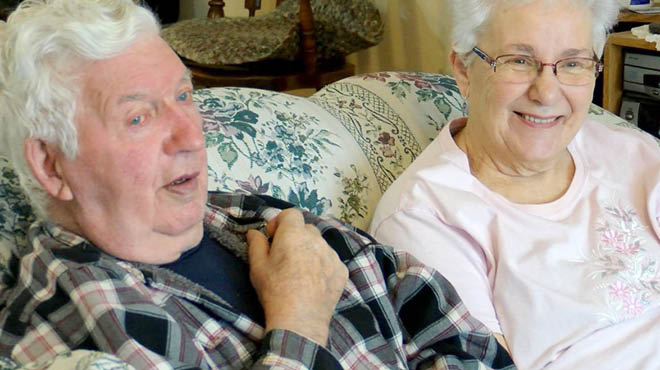Recent Posts
What's that sound? A heart murmur can be innocent or serious

Lubb-dupp. Lubb-dupp. that healthcare professionals often use to mimic the sound of your heartbeat. That steady, regular sound is made by your heart valves opening and closing as blood circulates through your heart.
You may have heard the term "heart murmur." A murmur is an extra heart sound that can be heard by a stethoscope. Sometimes, the murmur sounds like a humming, which can be faint or loud. It might be temporary or persistent. Heart murmurs may be present at birth or develop later in life during pregnancy, phases of rapid growth like adolescence or from a fever or anemia.
The murmur may disappear as quickly as it comes if it has a temporary cause. However, a murmur also could be persistent and loud, easily heard and sound like a churning mill wheel or cooing seagull. This might indicate a serious heart problem.
What causes a heart murmur?
Multiple factors can cause a murmur. It could be a heart valve problem or a hole in the heart.
The valves in your heart act as doors between the chambers, or rooms, of the heart. In the case of a murmur, a valve may be tight or leaky. When heart valves are narrow, this is called stenosis. A murmur also could be from a leaky valve, called regurgitation.
A murmur also may occur from high blood flow in people with a fever or with low red blood cells, called anemia.
Some people have a family history of heart murmur and heart disease. Some are born with a congenital condition causing a murmur. Others have had a recent severe infection or illness that could damage a heart valve and need immediate medical attention.
What are the symptoms of a heart murmur?
Innocent or harmless heart murmurs don't typically cause symptoms, and most heart murmurs aren't serious.
Symptoms of a serious or worrisome heart murmur depend on the cause and require evaluation by a healthcare professional.
These heart murmur symptoms may include:
- Blue or gray lips or fingernails
- Chest pain
- Fainting
- Fever
- Leg swelling
- Lingering cough
- Shortness of breath
- Sudden weight gain
- Swollen liver or neck veins
- Worsening fatigue
How is a heart murmur diagnosed?
It’s common for a heart murmur to be detected during a physical exam being given for another reason. If a healthcare professional hears a murmur, you'll be asked questions about your personal and family history that could indicate a reason for the murmur.
Several criteria are used to determine if a murmur is innocent or worrisome, including:
- Volume
The loudness of the heart murmur is evaluated on a scale from 1 to 6. The loudest heart murmur is a 6. - Location
The location of the murmur in the heart will be identified, along with whether the sound spreads to the neck or back. - Pitch
The heart murmur may be high-, medium- or low-pitched. - Timing
A heart murmur that occurs when blood leaves the heart is a systolic murmur. A murmur that occurs when the heart fills with blood is called a diastolic murmur. A murmur also may be heard throughout the heartbeat. When the murmur is heard as blood passes through the heart, it may be a sign of a larger heart problem.
You will need to undergo testing to determine the cause of the heart murmur. Your healthcare professional likely will order an ultrasound picture of your heart, called an echocardiogram or echo, to show detailed images of your heart's valves, chambers, structure and function.
Once the cause of a heart murmur has been found, some people will need repeated evaluation over the years. Others may need surgery to treat the cause of the murmur, especially if it's to adjust a tight or leaky valve, or to close a hole in the heart.
In some situations, people may need to take antibiotics before going to a dentist to protect the heart valves from potential infection. This infection, called endocarditis, can be spread via the bloodstream during dental work.
It's important to learn if a heart murmur is innocent or serious so you can get the proper treatment.
Next steps:
- Find a cardiologist near you.
- Learn more about cardiology care close to you.
- Read about a minimally invasive surgery to treat a leaky valve.
Michel Barsoum, M.B., Ch.B., is a cardiologist and vascular medicine specialist in Chippewa Falls, Eau Claire and Rice Lake, Wisconsin.




